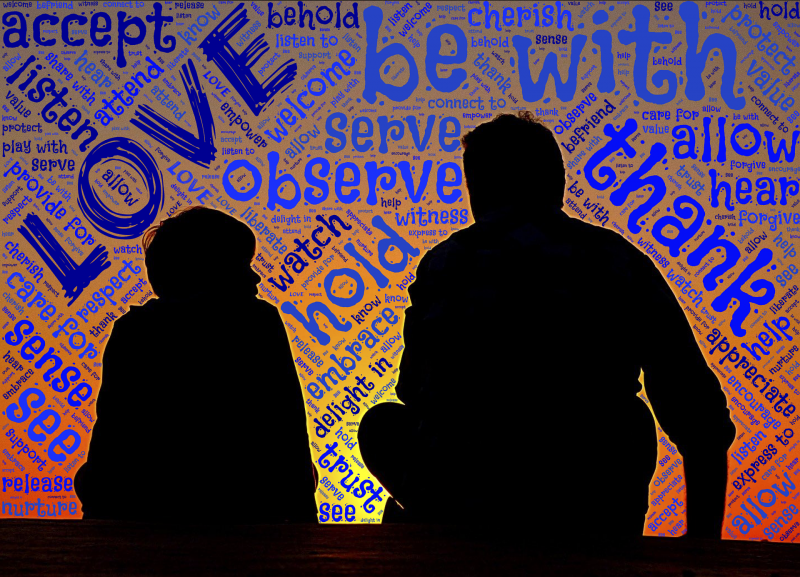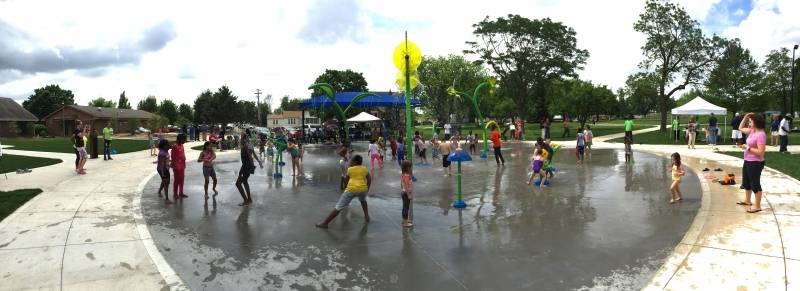People don’t talk to their neighbors anymore. It’s not just the thesis of a good-old-days rant; it’s true. In the 70s, an estimated 30 percent of humans in the United States frequently hung out with their neighbors; only 20 percent didn’t spend time with their neighbors at all. Today, only about 20 percent (Pew survey) even know the names of all of their neighbors. Are you in that 20 percent?
Probably not; that’s how statistics work. Could you be? For sure. Knocking doors and shaking hands is easy enough. Do you want to be in that 20 percent? You should. Why?
The irony of the Internet is that even while it strips away every last shred of our privacy and exposes our names, our families, our shopping preferences, and more to every set of interested eyes, it lets us hide from the people next door. We don’t need to meet the neighbor and ask whether her child would like to make a few bucks pulling weeds or mowing the lawn; we can just post “help wanted” on Craigslist or Nextdoor. Miss the big game? Steve down the block saw it, but you don’t have to ask him; espn.com has the score and a dispassionate write-up of the quarter-by-quarter action. Does your neighbor have a political viewpoint that’s different from yours? Well, you don’t need to talk to him and risk finding out that his position has merit or is at least worth considering; you can join an online usergroup for people who think like you do and pass around virtual high-fives while you guffaw at how stupid your neighbor is.

Did you know that your neighbor’s nine-year-old is home alone from 8:00 p.m. until 6:00 a.m. because her mom has to work thirds and can’t always get a sitter? Did you know that the bruises on the kid next door aren’t from football? It’s well and good for you and me to turn into self-reliant little entertainment pods and pass the time tapped into our smartphones, ignore our neighbors, and wait for the next sweet, sweet Groupon, but it’s not so good for the kid who is missing out on nurturing and discipline because the whole neighborhood knows exactly how awesome/awful the protests in Not-Here-Town have been but has gone selectively blind, deaf, and mute when it comes to the people across the street.
There are kids in this town who struggle. There are kids in this town who want to do well and don’t know how. They need someone to spend some time with them. They need someone to model some positive behaviors and let them screw up without some overhanging threat or discouragement. Sometimes, they need an adult to talk to who isn’t mom or dad, who isn’t part of the “authority,” and that’s harder and harder to find when you know that Donald Trump eats McDonald’s with a fork but not that your neighbor likes to grill in January.
You may not be moved to meet your neighbor. You still may not care to attend community meetings and get to know the people you share this space with. It all takes time, and time’s a precious commodity these days. But there is something you can do to make a difference, something you can do to meet the kids in Champaign-Urbana, to learn what it’s like to grow up here in 2017 and make a positive, lasting difference in the health of your community, and it takes very little time: volunteer to be a mentor to a C-U youth.
If it sounds daunting, it’s not. In your 168-hour week, you donate 1 to spending time with a youth in the C-U school districts. That’s it. You show up when you say you will once a week and hang out with a kid. You play sports or board games, do crafts, or just shoot the breeze: whatever’s safe and school friendly. It’s an hour a week, almost nothing, but it makes an immeasurable difference in the potential and outlook of the young person receiving that hour of your time. It’s good for the kid, and it’s great for your own perspective.
 As we get older, we view kids’ behaviors and successes through the lens of our own childhoods, and the more the years pass, the less and less relevant those lenses are. A 2000s kid and a 2010s kid have far less in common than do an 80s kid and a 90s kid, and that’s because technology is hurtling us forward at a pace unprecedented. There’s an entire world—entertainment, activities, hyperdynamic vernacular—that we aren’t connected to, and it’s amazing what you can learn about yourself by talking about the big events of the school, the city, the state, the country, and the world at large in an open, conversational way with a 10-year-old.
As we get older, we view kids’ behaviors and successes through the lens of our own childhoods, and the more the years pass, the less and less relevant those lenses are. A 2000s kid and a 2010s kid have far less in common than do an 80s kid and a 90s kid, and that’s because technology is hurtling us forward at a pace unprecedented. There’s an entire world—entertainment, activities, hyperdynamic vernacular—that we aren’t connected to, and it’s amazing what you can learn about yourself by talking about the big events of the school, the city, the state, the country, and the world at large in an open, conversational way with a 10-year-old.
The real payoff, though, is seeing the kid grow up, make sound decisions, and say, “I got here because my mentor was there for me.” Mentors are real people, real role models whom kids can connect to. They are real examples of health and stability who make possible a positive adulthood some kids could not fathom before, and anyone can do it: teachers, plumbers, stay-at-home moms and dads, writers, artists, police officers, nurses, coaches, and more. Today’s kids will be running the show tomorrow; shouldn’t you help get them ready?
There are a number of organizations in Champaign-Urbana you can contact to get moving in the right direction, like Big Brothers Big Sisters, TALKS, and the Champaign-Urbana One-to-One Mentoring Program. Get to know the kids in your community and help them along; it’s our way forward together, toward greater trust in our neighbors and a healthier C-U.








